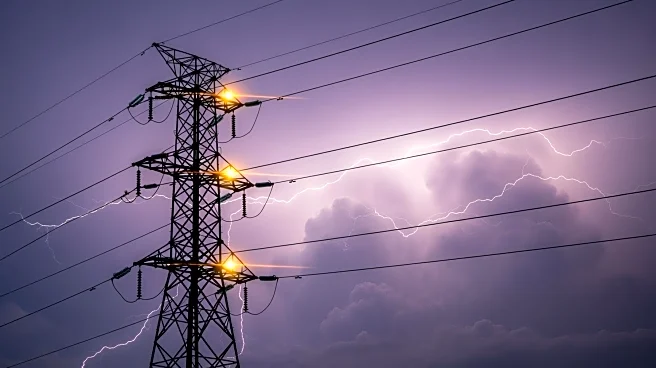What's Happening?
Cities across Ukraine have been targeted by Russian missiles and drones, leading to casualties and widespread power outages. The attacks included Kinzhal hypersonic missiles, cruise, and ballistic missiles, according
to Ukrainian authorities. Nichita Gurcov, an analyst with ACLED, noted that Russia is intensifying its bombing campaign to disrupt Ukraine's electricity and heating infrastructure as winter approaches. Previous strikes in October had already wiped out a significant portion of Ukraine's gas production sites. The latest attacks have further damaged energy infrastructure, causing emergency power outages in several regions.
Why It's Important?
The ongoing attacks on Ukraine's energy infrastructure are part of a broader strategy by Russia to weaken Ukraine's resilience during the winter months. This has significant implications for the civilian population, who may face harsh conditions without adequate heating and electricity. The strikes also signal Russia's continued aggression and unwillingness to ease its military campaign, affecting geopolitical stability in the region. The disruption of energy supplies could have long-term impacts on Ukraine's economy and its ability to sustain its defense efforts.
What's Next?
With no ceasefire in sight, Russia is likely to continue targeting Ukrainian sites. Ukraine is responding by expanding its deep strike campaign, targeting critical oil and gas sites, including recent attacks in Crimea. This escalation could lead to further civilian hardships in both Ukraine and Russia, as energy infrastructure remains a focal point in the conflict.
Beyond the Headlines
The targeting of energy infrastructure raises ethical concerns about the impact on civilian populations and the use of such tactics in warfare. The long-term damage to Ukraine's energy sector could hinder post-conflict recovery and reconstruction efforts, affecting the country's future economic stability.









